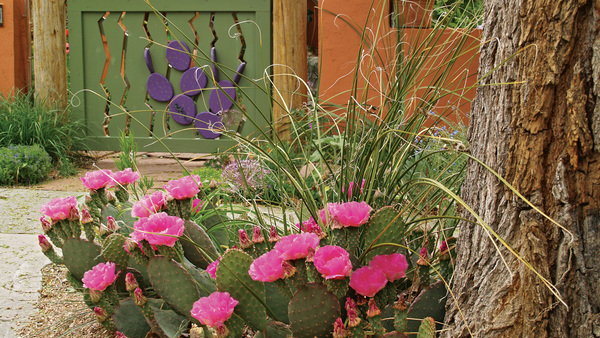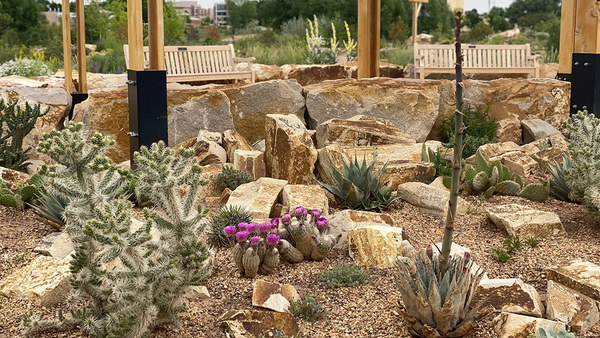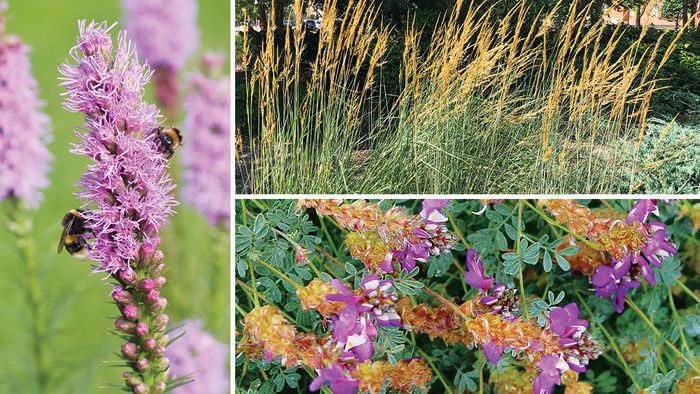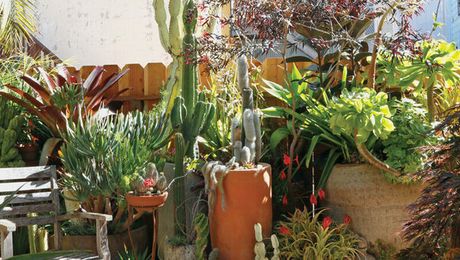
This extensive unirrigated planting of cold-hardy cacti and succulents basks on a warm south-facing slope in the Undaunted Garden at the Gardens on Spring Creek in Fort Collins, Colorado in zone 4b/5a. In late May and June, the cacti bloom in hot colors along with the ice plants. Thanks to these plants’ interesting evergreen forms as well as the finer textures of similarly dry-loving companion plants such as red yucca for contrast, the garden has abundant year-round appeal. The maintenance for this planting is simple and not extensive—a bit of cutting back and cleaning up of companion plants both as they finish blooming and in early spring along with weeding is all that’s needed. However, this requires agility and dexterity as many plants are sharp and prickly.
Bold colors and forms draw the eye in this xeric planting
- Granita® Orange ice plant (Delosperma ‘PJS02S’, Zones 5-9)
- Pale leaf yucca (Yucca pallida, Zones 5-10)
- Prickly pear cacti (Opuntia spp. and cvs., Zones 4-11)
- Superb penstemon (Penstemon superbus, Zones 5-9)
- Turquoise tails sedum (Sedum sediforme, Zones 5-10)
- ‘Snow Leopard’ Whipple’s cholla (Cylindropuntia x multigeniculata ‘Snow Leopard’ syn. Cylindropuntia whipplei, zones 5-9)
- Red yucca (Hesperaloe parviflora, Zones 5-10)
- Echinocerus hybrid (Echinocerus cv., Zones 5-10)*
- Fire Spinner® ice plant (Delosperma ‘P001S’, Zones 5-9)
- Desert bluebells (Phacelia campanularia, annual)
*This cactus is a mix of several different cactus species including claret cup cactus (Echinocereus triglochidiatus, Zones 5-10) and Texas rainbow cactus (Echinocereus dasyacanthus, Zones 6-10), among others.
Here’s a closer look at this planting:
- Prickly pear cactus
- Desert bluebells
- Fire Spinner® ice plant
- Turquoise tails sedum
- Granita® Orange ice plant
- Pale leaf yucca
- Echinocerus hybrid
Photos: Lauren Springer
Learn more:



















Comments
Log in or create an account to post a comment.
Sign up Log in